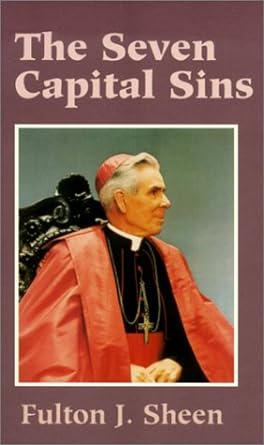We are concluding our study of the seven capital sins this week with the sin of covetousness, avarice, and greed. Aquinas says that covetousness is the immoderate desire for riches. Paul writes “But those who desire to be rich fall into temptation, into a snare, into many senseless and hurtful desires that plunge men into ruin and destruction. For the love of money is the root of all evils; it is through this craving that some have wandered away from the faith and pierced their hearts with many pangs.” 1 Tim. 6:9-10. Or as Christ teaches in the Sermon on the Mount, “No one can serve two masters, for either he will hate the one and love the other, or he will be devoted to the one and despise the other. You cannot serve God and money. . . For where your treasure is, there your heart will be also.” Matt. 6:24, 21. Unlike the inordinate desires of Lust or Gluttony, Avarice is never satisfied because there is always more to gain. The Preacher says “Whoever loves money never has enough; whoever loves wealth is never satisfied with their income. This too is meaningless.” Ecclesiastes 5:10. Greed is the insatiable sin.
The Gospels record (Luke 18:18-30) Jesus’ encounter with the rich young man who inquires of Jesus what he must do in order to be saved. Jesus replies that he should follow the Commandments, to which the young man replies that he does. Jesus then tells this rich man that if he wishes to be perfect then he is to sell everything that he owns, which causes the man to leave disappointed. Jesus then says “it is easier for a camel to go through the eye of a needle than for a rich person to enter the kingdom of God.” Jesus’s command to the rich man isn’t a command of general applicability since Jesus praises the rich tax collectors, Matthew (Luke 5:29) and Zacchaeus (Luke 19:9), without any requirement of their divestment. And we know that the wealthy, such as Lydia or Philemon, often played an important role in Paul’s ministry. (Acts 16:13-15).
I have attached a short discourse from Clement of Alexandria entitled Who is the Rich Man that shall be Saved. The theme of his discourse is that Christ does not require the renunciation of worldly goods but rather requires that such goods occupy the appropriate place, as our servants, not our masters. Clement writes: “For salvation does not depend on external things, whether they be many or few, small or great, illustrious or obscure, esteemed or disesteemed; but on the virtue of the soul, on faith, and hope and love, and meekness, and humility, and truth.” (Ch. 18). Clement posits that even if the man had given away all he had, but if he still retained his desire for money the command given by Christ would still have remained unfulfilled. (Ch.12).
A recent study performed by social psychologists at Berkeley supports the link between wealth (greed) and anti-social behavior (sin). The professors found that drivers of luxury cars were 4x less likely to stop for pedestrians in a crosswalk and that people making more than $100,000/year were more than twice as likely to steal candy from children, 4x as likely to cheat at a game of dice when cash was on the line, and more likely to lie in negotiations and endorse unethical behavior at work, including stealing. They concluded that an individual’s unethical tendencies were accounted for, in part, by their more favorable attitudes toward greed. Here is the Article, the PBS News Hour report, and the write-up in the Wall Street Journal. Greed is the root of all evil.
Dinner is at 6. Discussion at 6:45. Hope to see you here.
Therefore, preparing your minds for action, and being sober-minded, set your hope fully on the grace that will be brought to you at the revelation of Jesus Christ. As obedient children, do not be conformed to the passions of your former ignorance, but as he who called you is holy, you also be holy in all your conduct, since it is written, “You shall be holy, for I am holy.” And if you call on him as Father who judges impartially according to each one’s deeds, conduct yourselves with fear throughout the time of your exile, knowing that you were ransomed from the futile ways inherited from your forefathers, not with perishable things such as silver or gold, but with the precious blood of Christ, like that of a lamb without blemish or spot.
1 Peter 1:13-18.


Pingback: Ephesians 5:1-5, Imitators of God – Ancient Anglican